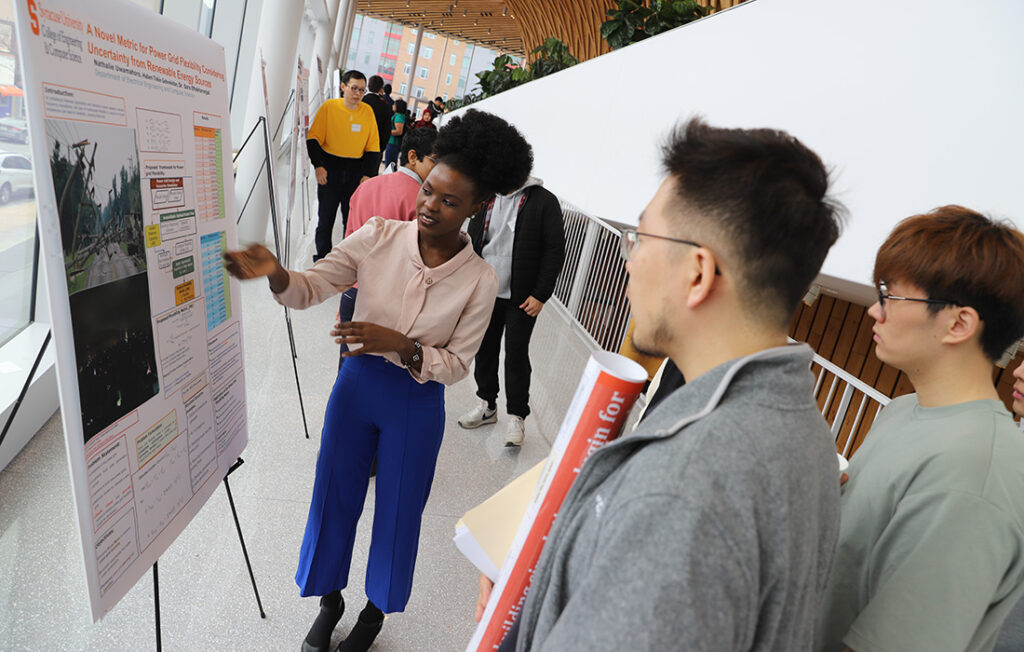
Power outages have various causes, with severe weather conditions such as storms, hurricanes, and heat waves frequently disrupting transmission lines. According to the American Public Power Association, wildlife interactions also contribute to power disruptions, accounting for 11% of U.S. outages between 2013 and 2017. However, not every outage is caused by external factors. Sometimes, outages can occur when power generation simply can’t meet electricity demand.
“Depending on the time of day, such as morning work hours, the power consumption is lower so power generation should be adjusted to the power being consumed,” says Nathalie Uwamahoro, an electrical and computer engineering graduate student. “During rush hour in the evening, the power demand goes up so the power generation should be able to adjust quickly to meet that demand as well.”
The need for flexibility within power grids has been an ongoing challenge in electrical systems, as the power grid is a complex network with many components. Uwamahoro is developing a new flexibility metric to determine a power grid’s capability to handle the uncertainties of renewable energy generation. She’s been collaborating with her advisor, Associate Professor Sara Eftekharnejad, in Smart Grid Research Lab, an interdisciplinary lab that seeks to ensure power grid reliability and sustainability.
“If more transmission lines, transformers, or generation resources fail, power generation won’t be able to sustain the demand,” says Uwamahoro. “We want to create a simple, robust metric that can assess the capability of a power grid to maintain reliable electricity and support the power system.”
The power grid flexibility metric will use machine learning and electrical engineering theories to function and Uwamahoro believes their work can contribute to new topics in power grid research. Their metric could also help states in the U.S. with issues concerning power generation and sustainability. She was awarded the best graduate student paper award at the 2023 North American Power Symposium (NAPS) which was based on her research on cascading failure within power grid systems. This served as the foundation for the research on power grids she conducts today.
“A failure in a single transmission line can spread through the entire system if protection devices fail to clear the faults, leading to cascading failures that can cause large-scale power outages, ranging from city-wide to national levels. We used machine learning methods to predict potential power grid failures.”
Uwamahoro was also selected to participate in the Summer Dissertation Fellowship 2024 for Ph.D. students. She was chosen to be among 32 Teaching Mentors who trained new teaching assistants. “The opportunity to use machine learning techniques in power system problems is amazing,” she says. “As an electrical and computer engineering Ph.D. candidate, I got the opportunity to study courses in computer engineering too. I look forward to publishing our research findings in the near future.”
